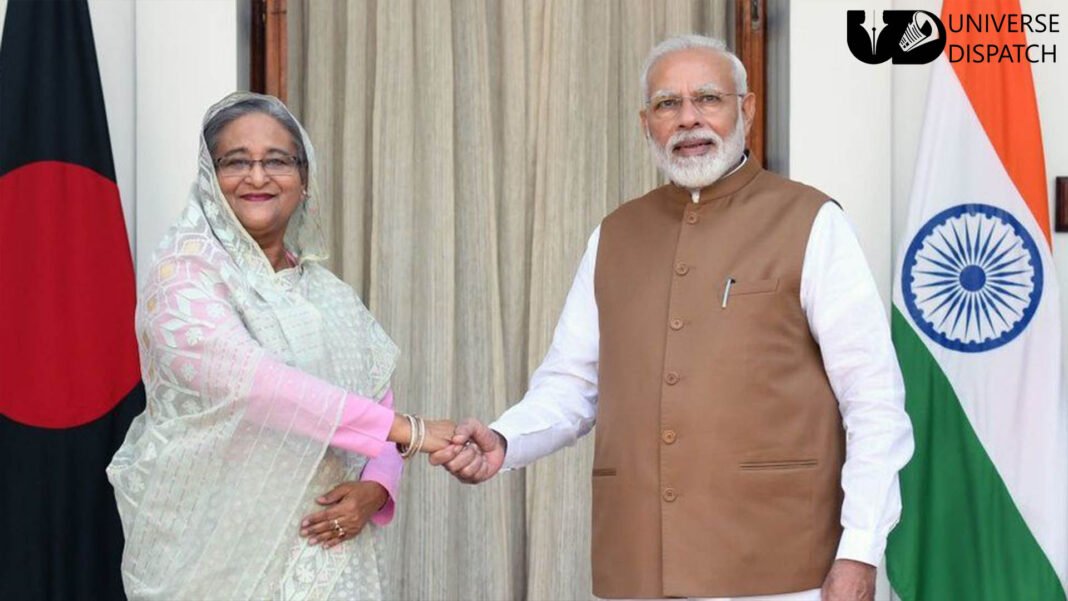Why Narendra Modi’s visit to Bangladesh led to 12 deaths
Bangladesh had hoped that Prime Minister Narendra Modi’s presence at its 50th independence anniversary celebrations last week would be memorable. However, the visit turned deadly as violent protests broke out against Mr. Modi, leaving at least 12 people dead.
Moreover, Mr. Modi is a dividing figure both at home and abroad. His government led by the Hindu nationalist Bharatiya Janata Party (BJP). While it has often been accusing of pursuing policies that target Muslim minorities and not doing enough to curb violence against them.
While his conflict image appears to have sparked the protests in the capital Dhaka. And the violence that followed no doubt was an embarrassment to both countries. While it also casts a shadow on what has always been a lovable relationship between India and Bangladesh.
What happened in Bangladesh?
Mr. Modi arrived in Dhaka for a two-day visit on 26th March, Bangladesh’s independence day. While it also coincided with the birth centenary of Sheikh Mujibur Rehman, the country’s founder and father of the current prime minister Sheikh Hasina.
On the other side, leaders of the Maldives, Sri Lanka, Bhutan, and Nepal were all guests of honor at the event. But Mr. Modi’s visit, which was meant to cap off the 10 day long celebrations set off protests. A group of Muslim worshippers held a protest on 26th March after Friday prayers at a mosque in the city.
Protests then spread to other parts of the country and a hardline Islamist group. Hefazat-e-Islam, called for a nationwide shut down on 28th March to protest the attacks on those who held rallies against Mr. Modi’s visit. Police fired tear gas and rubber bullets to disperse the crowd, which threw rocks and stones at security forces.
Does the violence affect bilateral relations?
India and Bangladesh have historically enjoyed a good relationship. Bangladesh was formerly East Pakistan. While it became a part of Pakistan when Britain divided the subcontinent into a Hindu-majority India and Muslim majority Pakistan in 1947.
However, in 1971 Bangladesh fought for its independence from Pakistan, and with the help of Indian military intervention, it became a separate country. Bit the BJP’s rise to power has complicated matters.
In 2019, Mr. Modi’s government passed a contentious citizenship law that would give asylum to religious minorities fleeing persecution from Afghanistan, Pakistan, and Bangladesh. By definition, that does not include Muslims. The Citizenship Amendment Act was seen as Anti-Muslim and it drew widespread criticism from India’s opposition parties and rights groups.
On the other side, Hindus constitute around 8% of Bangladesh’s population of more than 160 million. At one point Bangladesh even cancel a few high-profile ministerial visits to India following domestic criticism of the citizenship law and proposed National Register of Citizens (NRC).
The final NRC in Assam has left out nearly two million, including Hindus and Muslims. Who ostensibly lacking sufficient documentation to prove that they were not unauthorizing immigrants from Bangladesh. Hindu hardliners want the Muslims who make it to the list is deporting to Bangladesh.
While another thorn in the bilateral relationship is the killing of Bangladeshi civilians along the border by Indian security forces. Rights groups allege that more than 300 people have been killed since 2011. Indian officials say most of those killed are smugglers from criminal gangs. But Bangladesh maintains that many of the victims were civilians.
India – Bangladesh Relationship:
The India-Bangladesh relationship has been one-way traffic. Bangladesh has given lots of concessions to India without getting much in return. The two countries share 54 rivers and except for one, they all flow from upstream India to Bangladesh before reaching the Bay of Bengal.
India has the ability to regulate water flow. But except for the Ganges, the two countries have not yet signed an agreement on any other river, much to the displeasure of Bangladesh. Maintaining a good relationship with Bangladesh is key to India’s security in its north-eastern region where several indigenous separatist groups operate.
Moreover, India often boasts of its excellent relationship with Bangladesh. It’s seen as a silver lining in its diplomacy in its backyard given Delhi’s troubling ties with other neighbors such as Pakistan and China. The anger over Mr. Modi’s visit is, therefore, a clear warning to Delhi. While if the sensitivities of its neighbor are not addressed, India may end up being friends only with the government in Dhaka and not with the people of Bangladesh.




